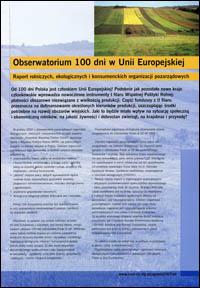

Related content
Wzmacnianie naszego dziedzictwa zestaw narzędzi 2.0 : ocena efektywnosci zarzadzania dobrami swiatowego dziedzictwa i innymi miejscami dziedzictwa
World Heritage properties are internationally recognized as places of Outstanding Universal Value that should benefit from the highest level of management effectiveness. The Toolkit 2.0 offers a self-assessment methodology to evaluate management effectiveness in a World Heritage property or other heritage place. It contains 12 tools that can be used separately or collectively to understand in detail what is working well and what can be done better. The Toolkit supports managers in identifying ways to improve conservation practices, management processes and resource allocation – particularly if used before reviewing or updating management plans. While there is a focus on World Heritage, it can be applied to all heritage places, whether natural, cultural or combinations of both.
Zarzadzanie ryzykiem katastrof w światowym dziedzictwie
The objectives of this manual are: to help the managers and management authorities of cultural and natural World Heritage properties to reduce the risks to these properties from natural and humanmade disasters; to illustrate the main principles of Disaster Risk Management (DRM) for heritage and a methodology to identify, assess and mitigate disaster risks; to explain how to prepare a DRM plan based on this methodology; to demonstrate that heritage can play a positive role in reducing risks from disasters; and to suggest how DRM plans for heritage properties can be integrated with national and regional disaster management strategies and plans.
Przygotowywanie wniosków o wpisanie na Listę światowego dziedzictwa : wersja druga
The manual is based on the version of the “Operational Guidelines for the Implementation of the World Heritage Convention” dated August 2011 and seeks to complement it. In particular, the manual seeks to support States Parties in implementing the World Heritage Convention and to provide guidance and knowledge that will help ensure a credible World Heritage List of well-managed properties of Outstanding Universal Value. it is hoped that the manual will help States Parties to carefully consider the implications of proceeding with World Heritage nominations and take the necessary steps to ensure that the effort is worthwhile for both the conservation of the property and the well-being of local communities and other local stakeholders.
Wytyczne i zestaw narzędzi do ocen oddziaływania w kontekście światowego dziedzictwa
As the World Heritage Convention celebrates its 50th anniversary in 2022, over 1100 sites around the world are recognized as World Heritage – places that are so valuable to humanity that there conservation has been deemed our collective responsibility. Yet many of these exceptional places face increasing pressure from diverse types of development projects within and around the sites. Assessing the impacts of such projects is essential to both prevent damage to World Heritage and identify sustainable options. This Guidance and toolkit explains the process for achieving these goals. Offering practical tips and tools including checklists and a glossary, it provides a framework for conducting impact assessments for cultural and natural heritage sites.
Wytyczne dla obszarów chronionych prywatnie
These guidelines address planning and management of privately protected areas (PPAs) and the guidance is aimed principally at practitioners and policy makers, who are or may be involved with PPAs. Guidance is given on all aspects of PPA establishment, management and reporting, and information is provided on principles and best practices, with examples drawn from many different parts of the world. The aim of these guidelines is to shape the application of IUCN policy and principles towards enhanced effectiveness and conservation outcomes, focused on PPA managers and administrators. Not all the guidance will necessarily apply in all social, political and economic contexts. However, learning from best practices around the world and considering how these can be incorporated at site or national level may improve the likelihood of success in private conservation and suggest how conditions might be improved to favour PPAs and thus capitalise on the opportunities they present.
Zarządzanie światowym dziedzictwem kulturowym
Poradnik zawiera wytyczne skierowane do Państw-Stron oraz wszystkich innych stron zaangażowanych w dbanie o dobra światowego dziedzictwa kulturowego. Wytyczne te mają pomóc w realizacji wymogów Konwencji. Poradnik ma również pomóc Państwom-Stronom w zagwarantowaniu dynamicznej roli dziedzictwa w społeczeństwie oraz możliwości wykorzystania, a także zaoferowania innym wzajemnych korzyści, jakie mogą się wiązać z taką rolą. Dotyczy on wyłącznie zarządzania miejscami dziedzictwa kulturowego. Z dobrami zaliczanymi do światowego dziedzictwa przyrodniczego wiąże się wiele podobnych zagadnień, ale odnoszą się do nich również odmienne problemy.
Agroecología y la lucha para la soberanía alimentaria en las Américas
Este libro busca: 1. examinar las dimensiones política, económica, cultural y ecológica de la soberanía alimenticia 2. generar e intercambiar conocimiento técnicamente informado y aplicable prácticamente 3. Facilitar la formación de alianzas entre culturas entre los EE.UU. y América Latina entre académicos y practicantes. Aborda una pregunta recurrente sobre cómo construir relaciones más fuertes entre académicos y practicantes, incluyendo agricultores y ONGs, que trabajan en la intersección entre los temas sobre alimentos, agricultura, y medio ambiente. El libro se gestó a partir de un taller en la Universidad de Yale sobre “Soberanía Alimenticia, Conservación, y Movimientos Sociales para una Agricultura Sostenible en las Américas”. Sobre la base del espíritu de este taller único los organizadores compilaron este libro que sintetiza los procedimientos, se expanden sobre hallazgos que de ahí se derivaron, y proveen recomendaciones concretas para académicos, formuladores de políticas, movimientos de agricultores, y otras audiencias.

